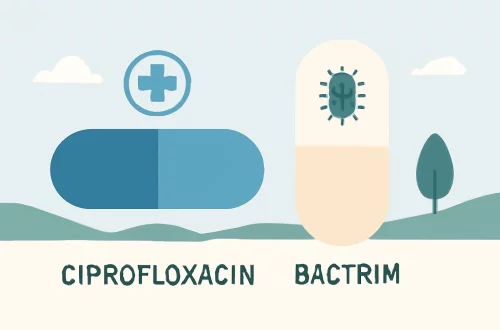
The Worst Foods for Your Lymphatic System You Should Avoid
The lymphatic system plays a vital role in maintaining overall health by facilitating the removal of toxins, waste, and other unwanted materials from the body. This intricate network of vessels, tissues, and organs is essential for proper immune function and fluid balance. However, certain dietary choices can significantly impact the efficiency of this system, leading to potential health issues. Understanding which foods can sabotage your lymphatic system is crucial for maintaining optimal health. Making informed dietary decisions can help support lymphatic drainage and overall well-being.
In today’s fast-paced world, many individuals find it challenging to prioritize their health, often opting for convenience over nutrition. Unfortunately, this can lead to the consumption of foods that may hinder the lymphatic system’s function. By recognizing the worst offenders and making mindful choices, you can significantly improve your lymphatic health. The aim of this article is to shed light on these detrimental foods, empowering you to make better dietary decisions that promote a healthy lymphatic system and overall vitality.
Processed Foods and Their Impact
Processed foods are often high in preservatives, artificial ingredients, and unhealthy fats that can disrupt the body’s natural detoxification processes. These foods typically lack essential nutrients and fiber, which are crucial for supporting lymphatic health. When consumed regularly, they can contribute to inflammation and a sluggish lymphatic system.
One of the most significant issues with processed foods is their high sodium content. Excessive salt intake can lead to fluid retention, putting additional strain on the lymphatic system. This can hinder its ability to effectively transport lymph fluid and remove waste from the body. Furthermore, many processed foods are loaded with unhealthy trans fats and sugars, which can lead to obesity and related health issues. Obesity is known to impair lymphatic function, making it even more essential to limit processed food consumption.
Moreover, the lack of nutrients in processed foods means that your body may not receive the necessary vitamins and minerals to support its detoxification processes. Nutrients such as vitamins A, C, and E, along with minerals like zinc and selenium, play crucial roles in maintaining a healthy immune system and supporting lymphatic function. By avoiding processed foods, you allow your body to focus on nutrient-dense options that promote overall health and wellness.
Incorporating whole, unprocessed foods—like fruits, vegetables, whole grains, and lean proteins—can provide your body with the nutrients it needs to optimize lymphatic health. These foods are rich in antioxidants and anti-inflammatory properties, which can help reduce inflammation and support the lymphatic system in its natural detoxification processes.
Sugary Beverages: A Hidden Threat
Sugary beverages, including sodas, energy drinks, and sweetened teas, pose a significant threat to lymphatic health. These drinks are typically packed with added sugars, which can lead to a host of health issues, including obesity, insulin resistance, and inflammation. Excess sugar consumption can overwhelm the lymphatic system, making it less effective in removing toxins from the body.
When you consume high amounts of sugar, your body is forced to work harder to process it, leading to an increase in insulin production. This can result in inflammation, which negatively impacts the lymphatic system and its ability to function correctly. Chronic inflammation can lead to a buildup of toxins, ultimately putting additional strain on the lymphatic system.
Furthermore, sugary beverages often lack essential nutrients, which means they provide empty calories without any real health benefits. This can lead to weight gain and, subsequently, obesity, which is known to impair lymphatic function. Obesity is often associated with a higher risk of developing lymph-related issues, including lymphedema.
To promote a healthy lymphatic system, it’s essential to replace sugary beverages with healthier alternatives. Water, herbal teas, and infused waters can provide hydration without the detrimental effects of excess sugar. Additionally, incorporating whole fruits into your diet can satisfy your sweet cravings while providing essential nutrients and fiber to support lymphatic health.
Foods High in Saturated Fats
Foods high in saturated fats, such as fatty cuts of meat, full-fat dairy products, and fried foods, can have a negative impact on the lymphatic system. These types of fats can contribute to inflammation and may lead to a buildup of toxins in the body, which can overwhelm the lymphatic system.
Saturated fats can increase levels of bad cholesterol (LDL) in the body, leading to a higher risk of cardiovascular disease. The cardiovascular system and lymphatic system are closely interconnected, and any strain on one can affect the other. High levels of LDL cholesterol can hinder blood circulation, further complicating lymphatic function.
Moreover, diets high in saturated fats can promote the development of obesity and related health issues, which are known to impair lymphatic drainage. When the body is burdened with excess weight, the lymphatic system has difficulty functioning optimally, leading to various health complications.
To support lymphatic health, it is advisable to limit the intake of saturated fats and replace them with healthier alternatives. Unsaturated fats, such as those found in avocados, nuts, seeds, and olive oil, can provide essential fatty acids that support overall health without the negative effects associated with saturated fats. Additionally, incorporating lean proteins like fish and plant-based proteins can help maintain a balanced diet that supports lymphatic function.
Excessive Alcohol Consumption
While moderate alcohol consumption may have some health benefits, excessive intake can be detrimental to your lymphatic system. Alcohol can contribute to dehydration, which can hinder lymphatic function and the body’s ability to detoxify effectively. Moreover, excessive alcohol consumption can lead to liver damage, which is crucial for detoxifying the body.
The liver plays a vital role in filtering toxins and waste products from the blood. When alcohol consumption becomes excessive, it can impair liver function, leading to a buildup of toxins in the body. This, in turn, can put additional strain on the lymphatic system as it works to eliminate these toxins.
Furthermore, alcohol can cause inflammation in the body, negatively impacting the lymphatic system’s efficiency. Chronic inflammation can lead to a host of health issues, including lymphatic congestion and related disorders.
To promote lymphatic health, it’s essential to consume alcohol in moderation and ensure that you stay hydrated. If you choose to drink, consider opting for healthier options, such as red wine, which has been associated with certain health benefits when consumed in moderation. However, always prioritize hydration and nutrient-dense foods to support your lymphatic system.
In conclusion, making mindful dietary choices is crucial for maintaining a healthy lymphatic system. By avoiding processed foods, sugary beverages, high-saturated fats, and excessive alcohol, you can support your body’s natural detoxification processes and promote overall health and wellness.
**Disclaimer:** This article is for informational purposes only and should not be considered medical advice. Always consult a healthcare professional for any health concerns or dietary changes.




